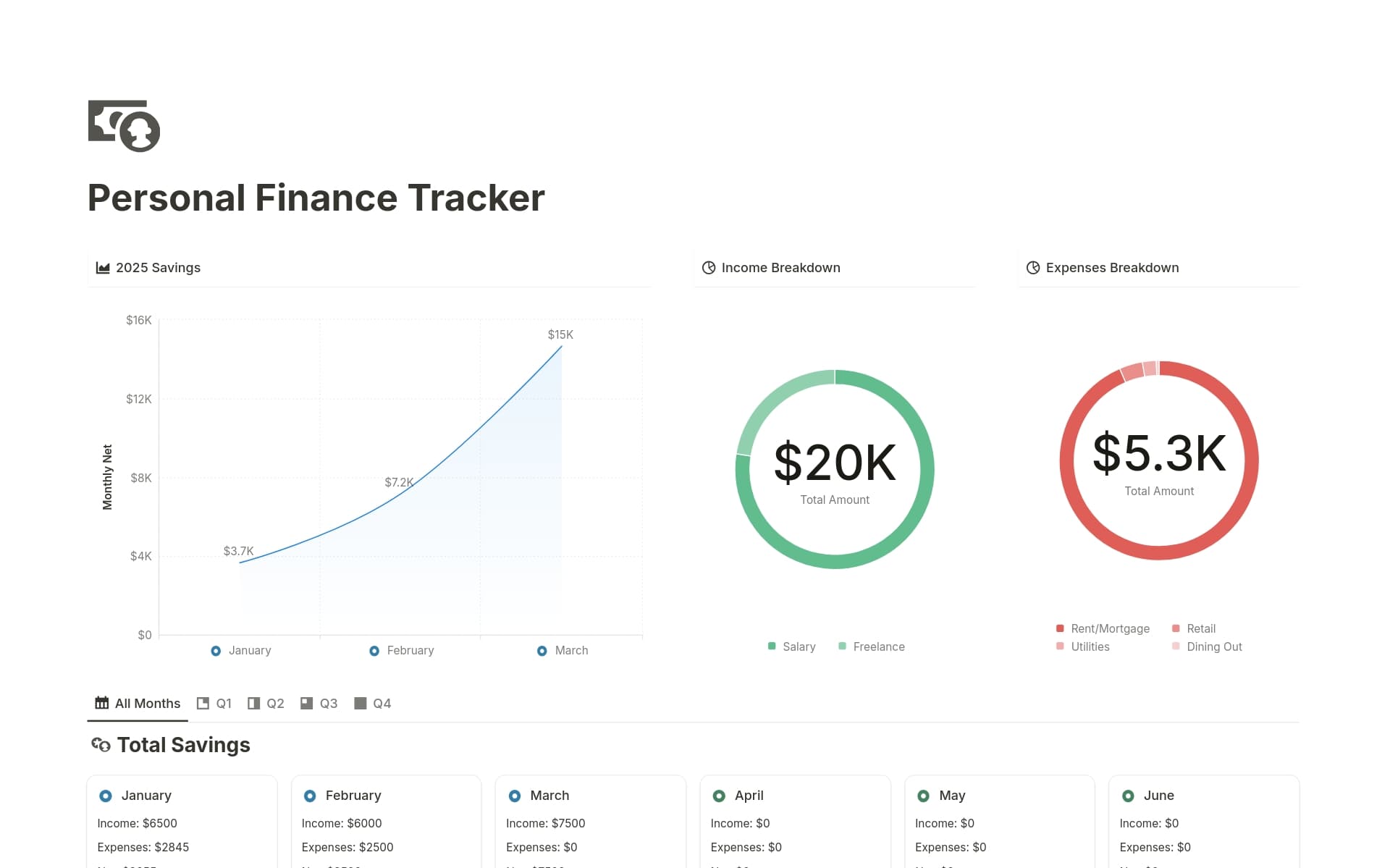Maintaining a balanced diet and tracking nutrient intake is crucial for overall health and well-being. A Nutrient Tracker helps you monitor your daily food consumption, ensuring you get the right balance of vitamins, minerals, and macronutrients. A Nutrient Tracker Notion template can streamline this process, making it easier to log meals, calculate nutritional values, and set dietary goals.
Before you start creating your own Nutrient Tracker, check out these Nutrient Tracker Notion templates below to help make it easier.
What Should Nutrient Tracker Templates Include?
Choosing the right Nutrient Tracker Template in Notion can significantly streamline your dietary management. Here are key components to look for when selecting a template:
Daily Intake Logs: A comprehensive section for logging daily meals and snacks, including caloric and nutritional content, helps in tracking eating habits effectively.
Macro and Micro Nutrient Breakdown: Ensure the template can break down not just macros like proteins, carbs, and fats, but also micros such as vitamins and minerals.
Weekly and Monthly Summaries: Templates should include views that summarize your intake over longer periods to observe trends and adjust your diet accordingly.
Integration Capabilities: Look for templates that offer integration with fitness apps for seamless updates on calorie expenditure and net intake.
Selecting a template with these features will empower you to manage your nutrition with precision and ease, enhancing your overall health and well-being.
What Should Nutrient Tracker Templates Avoid?
When selecting a Nutrient Tracker Template in Notion, it's essential to be aware of certain features that might complicate or diminish the effectiveness of your tracking. Here are three key components to steer clear of:
Overly Complex Layouts: Templates with too many sections or intricate designs can make data entry cumbersome and detract from user experience.
Non-Customizable Fields: Avoid templates that don't allow you to adjust the nutrient categories according to your dietary needs, as this flexibility is key to maintaining an accurate diet log.
Lack of Integration Features: Opt for templates that support syncing with other apps or devices. Templates without integration capabilities can limit your ability to consolidate and analyze data effectively.
Choosing the right template involves looking for simplicity, customization, and connectivity to ensure it enhances your dietary tracking without unnecessary complications.









![A template preview for Meal Planner [Simple Aesthetic]](/_next/image?url=https%3A%2F%2Fs3.us-west-2.amazonaws.com%2Fpublic.notion-static.com%2Ftemplate%2F738aab7b-a685-405c-b61d-b73a0608c2c2%2Fdesktop.png&w=3840&q=75)



